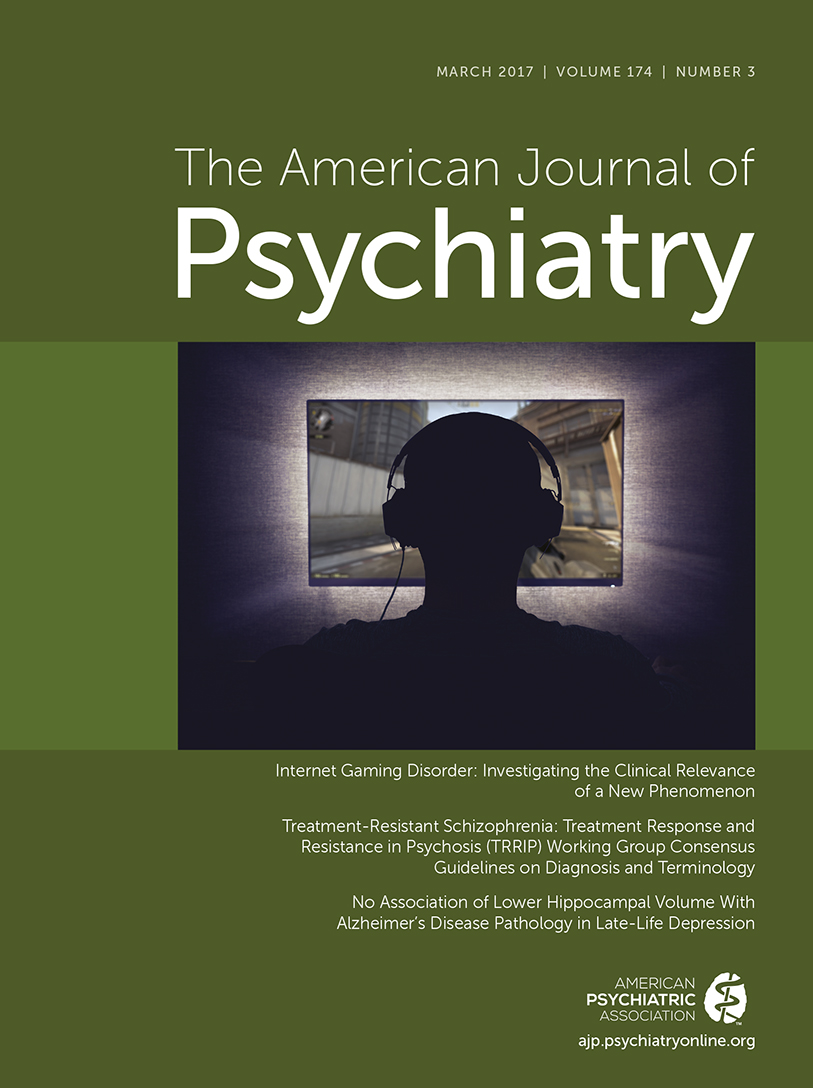Switch Rates During Acute Treatment for Bipolar II Depression With Lithium, Sertraline, or the Two Combined: A Randomized Double-Blind Comparison
Abstract
Objective:
The authors compared medication-induced mood switch risk (primary outcome), as well as treatment response and side effects (secondary outcomes) with three acute-phase treatments for bipolar II depression.
Method:
In a 16-week, double-blind, multisite comparison study, 142 participants with bipolar II depression were randomly assigned to receive lithium monotherapy (N=49), sertraline monotherapy (N=45), or combination treatment with lithium and sertraline (N=48). At each visit, mood was assessed using standardized rating scales. Rates of switch were compared, as were rates of treatment response and the presence and severity of treatment-emergent side effects.
Results:
Twenty participants (14%) experienced a switch during the study period (hypomania, N=17; severe hypomania, N=3). Switch rates did not differ among the three treatment groups, even after accounting for dropout. No patient had a manic switch or was hospitalized for a switch. Most switches occurred within the first 5 weeks of treatment. The treatment response rate for the overall sample was 62.7% (N=89), without significant differences between groups after accounting for dropout. The lithium/sertraline combination group had a significantly higher overall dropout rate than the monotherapy groups but did not have an accelerated time to response.
Conclusions:
Lithium monotherapy, sertraline monotherapy, and lithium/sertraline combination therapy were associated with similar switch and treatment response rates in participants with bipolar II depression. The dropout rate was higher in the lithium/sertraline combination treatment group, without any treatment acceleration advantage.



